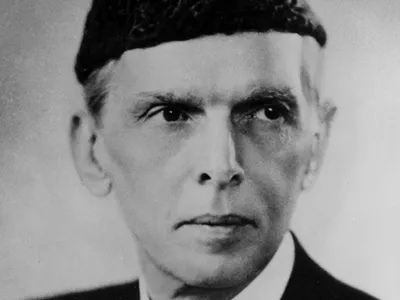Table of Contents
The Fourteen Points of Jinnah were a set of demands made by Muhammad Ali Jinnah, in 1929, which aimed to safeguard the rights and interests of Muslims in British India.
Introduction: Fourteen Points of Jinnah
- Muhammed Ali Jinnah in his presidential address[1] presented his viewpoints which became popular as Jinnah’s 14 Points.
- These points outlined specific provisions for political, cultural, and economic rights of Muslims.

Context
- The Nehru report was submitted to the All-Party Conference held in Lucknow in August 1928.
- Muslim Leaders like Aga Khan and Mohammad Shafi criticized it. They considered it a death warrant for the Muslim Community because it recommended joint electorates for Hindus and Muslims.
- The separate electorate for Muslims was introduced in the constitutional reforms of 1909 and 1919.
Fourteen Points of Jinnah
- India should have a federal constitution, with residuary powers vested in the provinces.
- Autonomy shall be given to all provinces.
- All legislatures in the country and other elected bodies shall be constituted on the definite principle of adequate and effective representation of minorities in every province without reducing the majority in any province to minority or even equality.
- In the Central Legislature, Muslim representation shall not be less than one-third.
- The separate electorate should continue to provide representation to the communal groups. It shall be open to any community, at any time, to abandon its separate electorate in favor of a joint electorate.
- Any territorial redistribution shall not in any way affect the Muslim majority in Punjab, Bengal, and NWFP provinces.
- Full religious freedom shall be guaranteed to all communities.
- At least one-third of representation shall be given to Muslims in both central and provincial cabinets.
- No bill or resolution shall be passed in any legislature if three-fourths of the members of any community in that legislative body oppose the bill.
- Sindh should be separated from the Bombay Presidency.
- Reforms should be introduced in the NWFP and Balochistan in the same way as in the other provinces.
- Muslims should be given an adequate share in all the administrative services.
- Adequate safeguards should be provided for the protection of Muslim culture, education, language, religion, and personal laws, and the charitable institutions.
- No change will be made to the constitution without the consent of the province.
- Jinnah was the president of the Delhi Session of the Muslim League held in March 1929. ↩︎
